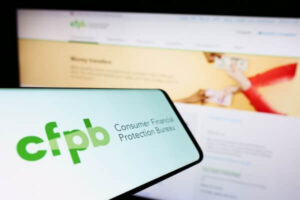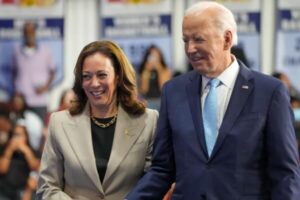Paying Down Student Loans Before the COVID Suspension Is Lifted
If you are paying on a federal student loan, you probably already know that the government CARES Act has provided benefits that suspends payment and interest requirements through May 1, 2022. That has been a godsend to those who lost their jobs in the wake of the COVID-19 pandemic.
That relief, however, isn’t the only advantage of the CARES Act. If you’re still earning an income, it’s an opportunity for you to reduce your student debt faster than you could before.
Just because you aren’t required to make loan payments during this grace period doesn’t mean you shouldn’t.
Why You Should Continue to Pay Your Student Loans During the Pandemic
With interest charges suspended for federal student loan borrowers, whatever payments you make before the end of the year go directly to reducing the amount you owe.
It’s a simple equation:
- The more you pay now, the smaller your loan balance.
- The smaller the balance, the faster you can pay it off.
- The faster you can pay it off, the less interest you’ll pay over the life of the loan.
You can do this by continuing to make the normal monthly payments, even though they aren’t currently required. If you make extra payments, contact your lender and make it clear you want these payments to apply to your principal.
But to take advantage of this, you need to get started. New Year’s Day will come before you know it.
Should I Consolidate or Refinance My Student Loans During the Pandemic?
If they’re federal loans, don’t even consider refinancing until May, 2022. Currently, you aren’t accruing interest on these student loans, but that will change if you refinance them privately.
Refinancing federal student loans can be beneficial if you can find a better loan rate – either a lower one, or changing a variable interest loan into a fixed interest rate, or vice versa. Naturally, a lower rate could mean lower payments. Reducing your interest rate by 1% or more is worth considering. Use an online loan payment calculator to see if this makes sense for you.
For example, if you owe $50,000 in student loans at 5% interest, you’re paying about $530 per month. For every 1% drop in interest, you’ll save about $24 per month, which you can keep or use as a principal payment to pay off the loan faster.
Realize that this eliminates some of the federal loan protections, such as deferring payments if you’re unemployed, experiencing an economic hardship or on active-duty military service. The deferment protections offered by federal student loans are much stronger than those offered by private loans.
If you have private student loans, refinancing makes sense if you can find better rates, and current rates are at record lows. How low depends on your income and credit rating.
What Else Can I Do to Pay off My Student Loans Faster?
Your current student loan repayment plan may not be best for you. Switching from an income-driven repayment plan to a standard repayment plan could help you pay down loans more quickly if you can handle a higher monthly payment.
Sign up for autopay. Federal loans and some private lenders offer a 0.25% interest rate discount when they can automatically deduct payments from your bank account. Contact your loan servicer to find out if the discount is available.
Ask whether your employer offers tuition reimbursement or student loan forgiveness. Companies with student loan repayment benefits aren’t always good about making them known. Ask.
Are Private Student Loans Suspended?
The CARES Act and the executive order that extended it to year’s end did not suspend payments for private student loan holders. So, you should be making payments as usual on those loans unless your private lenders offered a forbearance period allowing you to temporarily postpone payments. Even in that case, interest will continue to accrue on private loans, so you should keep making monthly payments.
Get Help
If you aren’t confidant that you know enough to make the right decision, call a nonprofit credit counselor for advice on how best to deal with it.
Sources:
- Lake, R. (2020, September 25) How to pay off your student loans before payments resume. Retrieved from https://www.foxbusiness.com/money/pay-off-student-loans-before-payments-resume
- Herrera, I. (2020, September 22) Do you have federal student loans? The government is offering payment relief until Dec. 31 for those who qualify. Retrieved from https://www.ksat.com/money/2020/09/22/do-you-have-federal-student-loans-the-government-is-offering-payment-relief-until-dec-31-for-those-who-qualify/
- Farrington, R. (2020, September 23) Is Now The Best Time To Refinance Private Student Loans? Retrieved from https://www.forbes.com/sites/robertfarrington/2020/09/23/is-now-the-best-time-to-refinance-private-student-loans/
- N.A. (2019, October 21) Would Paying off Student Loans Improve my Credit Score? Retrieved from https://www.transunion.com/
- Hess, A. (2019, May 23) College grads expect to pay off student debt in 6 years—this is how long it will actually take. Retrieved from https://www.cnbc.com/2019/05/23/cengage-how-long-it-takes-college-grads-to-pay-off-student-debt.html
- Tretina, K. (2019, September 19) Student Loan Deferment and Forbearance: How to Pause Your Payments. Retrieved from https://studentloanhero.com/featured/student-loan-forbearance-and-deferment-repayment/
- Nykiel, T. (2020, July 7) 3 Ways to Lower Your Student Loan Interest Rate. Retrieved from https://www.nerdwallet.com/article/loans/student-loans/how-to-lower-student-loan-interest-rate


















